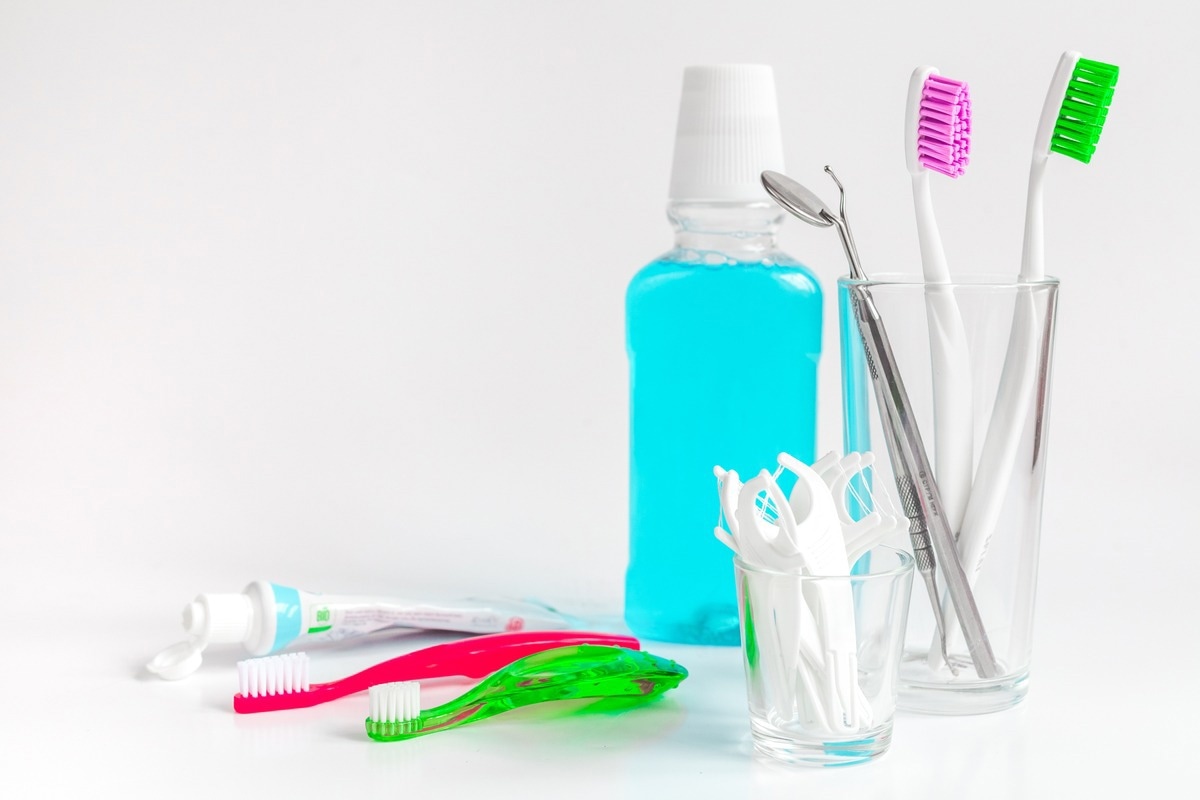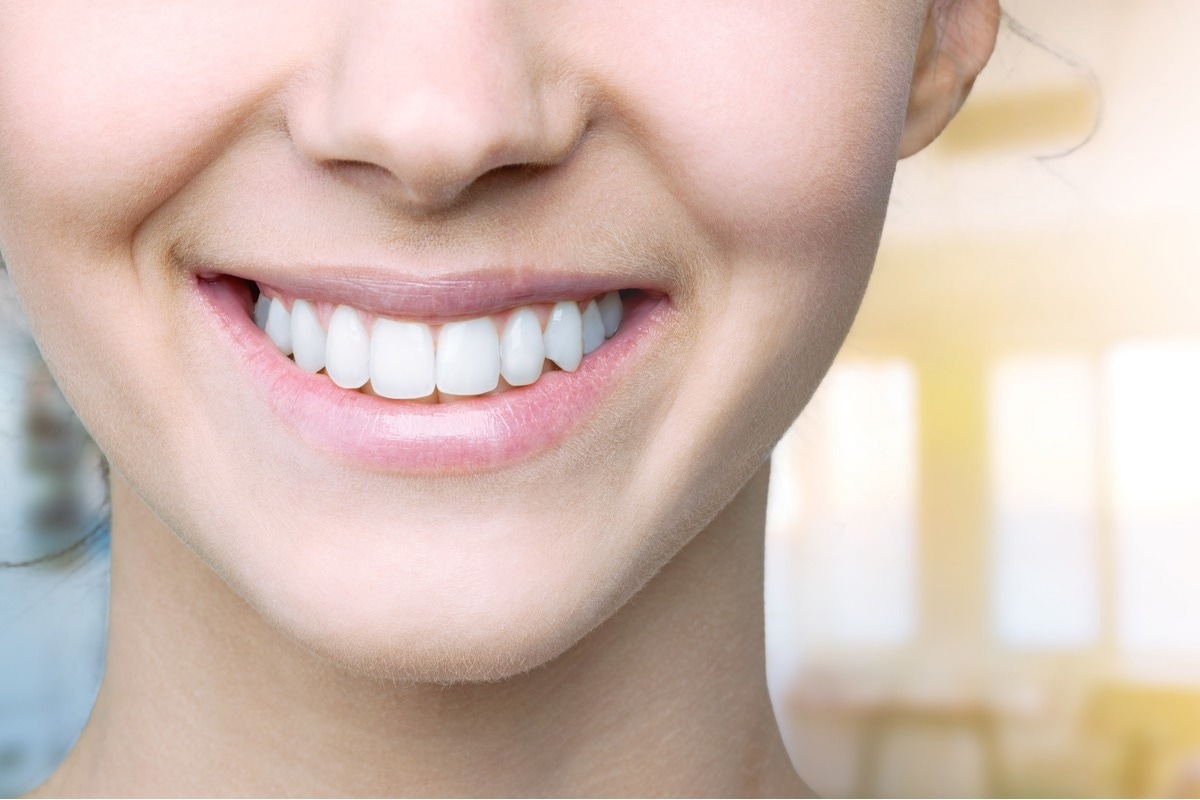Introduction
Risks associated with poor oral hygiene
Tooth plaque and its relationship to atherosclerosis
Hospital susceptible pneumonia and oral hygiene
References
Further reading
The general notion of oral hygiene, as pictured by most of the populace, is that the pivotal oral cavity we must protect encompasses the top of the crown, to the bottom. This is far from the case.
The notion that our teeth may affect the whole of our anatomy is both true, and something that is far overlooked. If one succumbs to a severe enough periodontal disease or other sorts of bacterial infection, a more severe prognosis could develop, tying one’s oral health to one’s overall health.
 Image Credit: 279photo Studio/Shutterstock
Image Credit: 279photo Studio/Shutterstock
The school of dentistry includes periodontics, endodontics, and other forms of oral pathology that specialize in tooth ailments, especially those that fall within the enamel and dentin, as well as its supporting structures. These specialists have led to the expounding of oral health and its connection with heart disease, cancer, and other diseases.
Risks associated with poor oral hygiene
As time progresses, and if bacterial damage or oral hypoxemia occurs to the periodontal ligament, the gum itself, or other supporting structures, it may lead to premature tooth loss. While losing a tooth is harmful enough as is, the resulting cavity could operate as a portal of entry for other pathogens, which may affect the rest of the human body.
Some dentists make grander claims, stating that they can gain a good summation of one’s overarching health based solely on their teeth. This may prove as more than just an anecdote, as oral hygiene is becoming increasingly linked to diseases such as heart disease and diabetes.
From papers like those produced by Juxiang Peng et al., we are shown firsthand that treating periodontal diseases at earlier stages directly correlates to the later reduction of coronary heart disease. Infectious agents found within the oral cavity reflect a diminishing in observed white blood cell count and a decrease in serum albumin. Many believe that gum disease of this nature only afflicts geriatrics and those of an older generation. This is only because these plaques and chronic infections have been given the necessary time to develop, though the rate of infection or inflammation varies greatly, and could affect any generation.
It is important to emphasize the fact that there are numerous studies that link atherosclerosis, and plaque-related ailments to cancer, rather than there being a direct cause and effect.
 Image Credit: Monkey Business Images/Shutterstock
Image Credit: Monkey Business Images/Shutterstock
Tooth plaque and its relationship to atherosclerosis
A well-known example of an ailment that is interrelated with tooth infection is atherosclerosis. Atherosclerosis is a form of heart disease that consists of plaques amassing around the arterial lining, required to supply arterialized blood to the heart and muscles. If time progresses, and one does not treat this debris and surrounding tissue damage, plaque buildup could develop chronically and may narrow the blood supply and restrict the amount of oxygenated blood supplied to smooth muscle, and cardiac muscle.
What is interesting is that the plaque that forms around one’s heart, is analogous to those that surround the teeth, stemming from the same kind of bacteria, generating the same kind of chemical waste through their cell membrane, afflicting the encompassing environment.

 Related: Nutrition and Oral Hygiene
Related: Nutrition and Oral Hygiene
Within the oral cavity and surrounding tissue, this chronic buildup of plaque will begin the process of inflammation, which may later lead to the slow erosion of bone. Once it has reached this stage, and it is symptomatic, the damage may be non-reversible. This plaque may solidify, and it may cause an infection underneath the gums.
Within one’s mouth, there are substructures that keep teeth fixed and secure. These are the gums and the bone. Once a tooth infection sets in the bacterium strain in question, whether it is streptococcus, lactobacilli, or others, it can migrate to these adjacent structures.
A common symptom of these infections is brushing one's teeth, followed by subsequent bleeding once someone rinses their mouth. What makes this case more prominent than other common afflictions, is the fact that these infections may not even hurt and are unable to register with one’s pain receptors. With this phenotype in mind, scientists like Juxiang Peng et al. have begun studying correlations between tooth loss and mortality. They plan to develop novel ways in treating periodontal disease, which could in turn reduce the severity of atherosclerosis.
Hospital susceptible pneumonia and oral hygiene
By tackling this problem of poor hygiene head on, proof of increased quality of life and longevity are demonstrated. A study by Chastity Warren demonstrates that the state of toothbrushes in hospitals is linked to the spread of pneumonia, a common problem we still face today.
Assays show a decrease in patients with non-ventilator healthcare-associated pneumonia (NV-HAP), and patients with ventilator-associated pneumonia (VAP), followed by the early treatment of periodontal-related ailments. Within a 202 patient study, a statistically significant reduction of patient deaths associated with NV-HAP decreased from 20 in the baseline group to 4 in the intervention group (χ(2) = 4.33, df = 1, P = 0.037). Paralleling this negative trend, NV-HAP discharges were found to be 2.84 in the baseline group, 1.41 in the intervention group.
 Image Credit: Billion Photos/Shutterstock
Image Credit: Billion Photos/Shutterstock
References
- Meurman JH, Sanz M, Janket SJ. Oral health, atherosclerosis, and cardiovascular disease. Crit Rev Oral Biol Med. 2004 Nov 1;15(6):403-13
- Warren C, Medei MK, Wood B, Schutte D. A Nurse-Driven Oral Care Protocol to Reduce Hospital-Acquired Pneumonia. Am J Nurs. 2019 Feb;119(2):44-51
- Aas, J. A., Griffen, A. L., Dardis, S. R., Lee, A. M., Olsen, I., Dewhirst, F. E., Leys, E. J., & Paster, B. J. (2008). Bacteria of dental caries in primary and permanent teeth in children and young adults. Journal of clinical microbiology, 46(4), 1407–1417. https://doi.org/10.1128/JCM.01410-07
- Peng, J., Song, J., Han, J., Chen, Z., Yin, X., Zhu, J., & Song, J. (2019). The relationship between tooth loss and mortality from all causes, cardiovascular diseases, and coronary heart disease in the general population: systematic review and dose-response meta-analysis of prospective cohort studies. Bioscience reports, 39(1), BSR20181773. https://doi.org/10.1042/BSR20181773
Further Reading
Last Updated: Jun 30, 2022